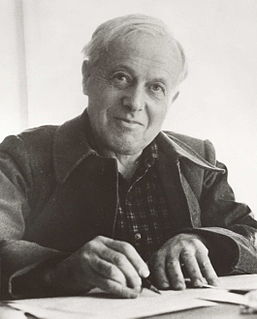A Quote by Ralph Waldo Emerson
All the facts of nature are nouns of the intellect, and make the grammar of the eternal language. Every word has a double, trebleor centuple use and meaning.
Related Quotes
The worst of this sorry bunch of semi-educated losers are those who seem to glory in being irritated by nouns becoming verbs. How dense and deaf to language development do you have to be? If you don’t like nouns becoming verbs, then for heaven’s sake avoid Shakespeare who made a doing-word out of a thing-word every chance he got. He TABLED the motion and CHAIRED the meeting in which nouns were made verbs
Nature is a language and every new fact one learns is a new word; but it is not a language taken to pieces and dead in the dictionary, but the language put together into a most significant and universal sense. I wish to learn this language - not that I may know a new grammar, but that I may read the great book which is written in that tongue.
Facts are neutral until human beings add their own meaning to those facts. People make their decisions based on what the facts mean to them, not on the facts themselves. The meaning they add to facts depends on their current story … facts are not terribly useful to influencing others. People don’t need new facts—they need a new story.
By a generative grammar I mean simply a system of rules that in some explicit and well-defined way assigns structural descriptions to sentences. Obviously, every speaker of a language has mastered and internalized a generative grammar that expresses his knowledge of his language. This is not to say that he is aware of the rules of the grammar or even that he can become aware of them, or that his statements about his intuitive knowledge of the language are necessarily accurate.
The majority of the people of the world today are unsane, not insane, unsane meaning having been exposed to methods of evaluation that have long rendered obsolete, our language in the future will change to a saner language where we have no argument in it, 'can there be such a language?' there is, when engineers talk to each other, it's not subject to interpretation, they use math, they use descriptive systems, if I interpreted what another engineer said in the way I think he meant it: you couldn't build bridges, dams, power transmission lines. The language has to have meaning
Let me just acknowlege that the function of grammar is to make language as efficent and clear and transparent as possible. But if we’re all constantly correcting each other’s grammar and being really snotty about it, then people stop talking because they start to be petrified that they’re going to make some sort of terrible grammatical error and that’s precisely the opposite of what grammar is supposed to do, which is to facilitate clear communication.
One of the reasons I love language is that concerning semiotics, language is an arbitrary sign system, which means the signs within it are free-floating, but we put them in a certain order to get them to have meaning for us. If we left them alone, they'd be like water, like the ocean. It would be just this vast field of free-floating matter or signs, so in this way, I think language and water have much in common. It's only us bringing grammar and syntax and diction and the human need for meaning that orders language, hierarchizes it.









































